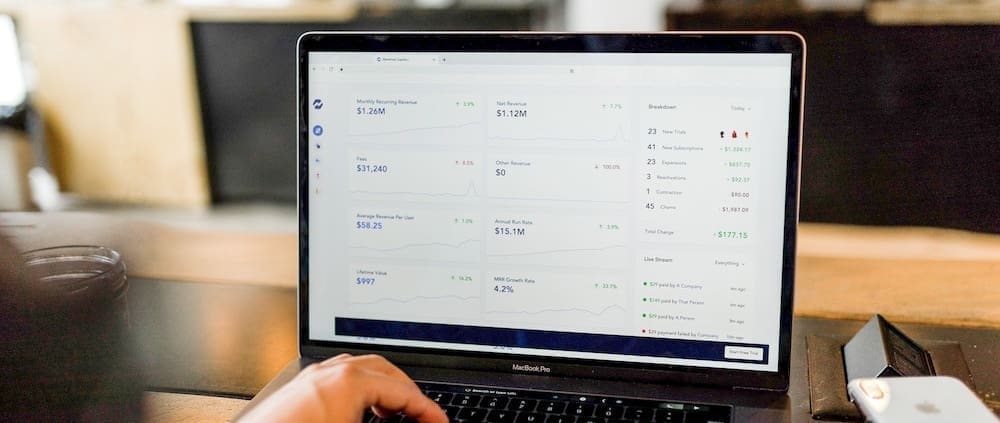When You Need to Hire a CPA
Bookkeeper? Accountant? CPA? Which one does your business need, or does it need all three of them? Actually, it depends. Staying on top of your business’s finances is key for a small business owner, but you may need more than day-to-day bookkeeping. When you have more questions than a bookkeeper can answer, you’ll probably need to look into CPA services. Fortunately, Xendoo has you covered. Read on to see if online CPA services are best for you and your business.
What is a CPA?
It’s important to understand the differences between a Certified Public Accountant, CPA, and a regular accountant. A CPA is an accountant who has met specific state and education licensing requirements and passed the CPA exam. So, accountants with the title of CPA offer a higher level of financial analysis for you and your business and can act as a fiduciary on your behalf.
At that same time, an accountant can give you tax savings advice, such as when to make capital purchases, what you can deduct, and how to reduce taxes on capital gains. They can answer your questions about financial reports, cash flow, depreciation, and other accounting processes and identify opportunities to improve profit margin and business growth. Additionally, they can help set up business accounting systems, teach you best practices, keep you legal, and prevent missed deadlines and noncompliance penalties.
What does a CPA do?
Certified Public Accounts can be the financial strategist for Fortune 500 companies or advisors to neighborhood businesses. CPA act as consultants on many issues, including taxes and accounting. Generally, online CPAs services include:
- Prepare financial statements
- Identify red flags and growth opportunities
- Prepare and file taxes
- Plan capital purchases and other investments
- Strategize for scaling the business
When should I hire a CPA?
Whether you’re starting or growing your business, an accountant can help set up financial systems and analyze data so that you can make smarter business decisions. They have the power to forecast business success, diagnose financial health issues, and increase revenue—saving you significant money, time, and hassle.
So while a bookkeeper focuses on the everyday tasks that maintain your business’s finances, accountants consider the big picture strategy to keep your business strong and growing, and a CPA has an even higher level of financial analysis to assure you’re making the right moves at the right time.
How much does a CPA cost?
Budgeting for bookkeeping and accounting services is tough for a small business. Traditionally, bookkeepers have charged an hourly rate; the more time they spend on your books, the more you have to pay. Typical rates are:
- Bookkeeper — $30 to $90 per hour
- CPA — $150 to $450 per hour
Or you may only need an accountant for an occasional project such as tax preparation.
- Tax return (unincorporated) — $200 to $500
- Tax return (incorporated) — $800 to $1,800
- Financial statement — $1,000 to $2,500
- Audit — $2,000 to $5,000
This is why accounting for a small business can become expensive. Plus, you may decide you only need an accountant for an occasional project such as tax preparation, financial statement, or audit, which costs a fixed amount that can add up, or you may not have allotted this in your end-of-the-year budget. A popular option with small businesses is an accounting service that charges a fixed amount every month. It’s easy to budget for, and it can cost less than half what you would pay an hourly accountant for the same amount of service. That’s why Xendoo offers a monthly pricing structure to our clients, charging a fixed amount every month. It’s easier to budget for bookkeeping and inline CPA services monthly and cost less than half of what you would pay an hourly accountant for the same service amount.
The right account professionals for your business
A small business accounting service will file your taxes, but you’ll need to have your bookkeeping in order so you can provide them with the data and reports they need. Xendoo’s online team of bookkeepers and CPAs will handle everything for you – they will manage all of your bookkeeping and accounting and will file the right return for you, right on time. Plus, Xendoo also takes care of all the filing that goes along with your tax return to itemize your business deductions.
Ultimately, it’s best for you and your business to have both a bookkeeper and an accountant. Making Xendoo your financial partner means joining a community of small business owners who love working with Xendoo’s bookkeepers and CPAs. Xendoo’s online CPA accounting services are ideal for small businesses because the more eyes looking out for your business, the better. Your dedicated financial team provides the perspective on your finances that can help ensure you’re able to anticipate problems and have the appropriate solutions ready to go. In gaining a complete picture of your company’s financial health, you can confidently grow your business.




